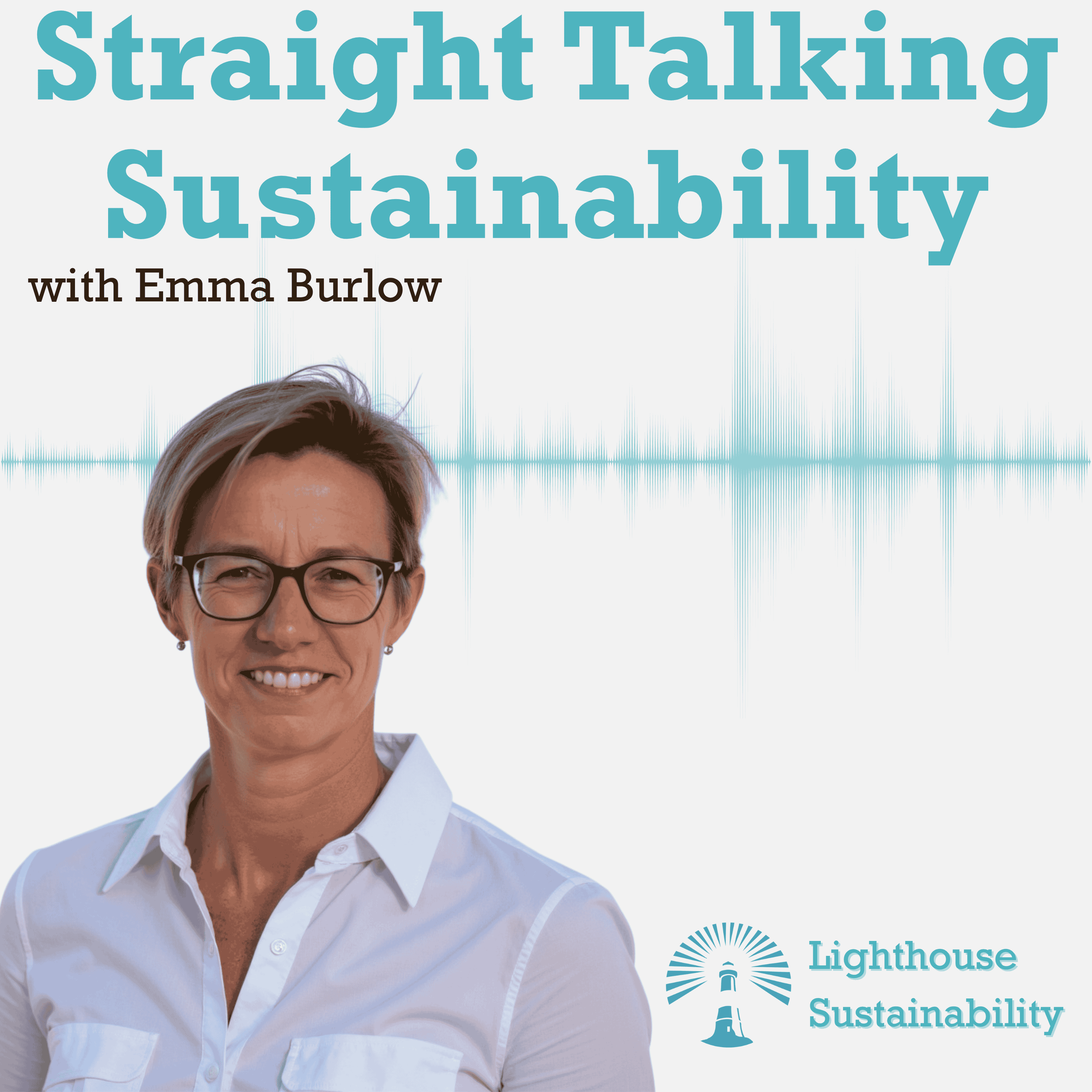Listen "Dismantling the China Excuse: Eight Powerful Responses to "But What About China?" in Climate Conversations"
Episode Synopsis
In this passionate and fact-packed solo episode of Straight Talking Sustainability, host Emma Burlow tackles one of the most common conversation stoppers in climate action discussions: "There's no point in us doing anything because we're only 2% of global emissions. What about China?" This excuse appears everywhere, from boardrooms to living rooms, and Emma has had enough of watching it derail progress.Drawing on historical data, trade realities, and competitive intelligence, Emma delivers eight comprehensive counter-arguments that sustainability professionals can keep in their back pockets for when this excuse inevitably surfaces. Rather than getting angry or defensive, she provides fact-based responses that acknowledge complexity while refusing to accept inaction.The episode starts with historical accountability, reminding listeners that the UK led the Industrial Revolution and was the world's largest coal producer in 1922. Climate change is a legacy issue; the warming we experience today stems from emissions released in the early 1900s. Carbon dioxide lingers in the atmosphere for up to 100 years, meaning cumulative emissions from the UK, EU, and US created the foundation of our current crisis.Emma then addresses the trade reality that many overlook: a huge chunk of China's emissions come from manufacturing products consumed in the West. Our phones, furniture, and building materials embed Chinese carbon in our shopping baskets. You cannot complain about China's emissions while simultaneously buying the products that create them.The conversation shifts to competitiveness, where Emma reveals an uncomfortable truth: while the UK debates and makes excuses, China is dominating the clean tech race in solar panels, electric vehicles, and battery storage. They have reached peak coal and are already transitioning. The question becomes whether the UK wants to lead this industrial revolution or be left behind buying technology from others.Through the lens of the Paris Agreement, Emma demonstrates mathematical reality: over 160 of the 195 signatory countries emit less than 2% of global CO2. If they all used the "we're too small to matter" excuse, there would be no point to international climate agreements. Every fraction of a percent adds up, which is precisely why collective action matters.Emma encourages listeners to choose arguments based on their audience. For innovative and ambitious business leaders, lean into the leadership and competitiveness angles. For those concerned about national interests, emphasise energy security and domestic benefits like cleaner air, warmer homes, and reduced reliance on imported gas. For values-driven conversations, acknowledge the moral responsibility to vulnerable nations that are already experiencing severe climate impacts.The episode serves as an essential toolkit for sustainability professionals tired of watching productive conversations get derailed by deflection to China. Emma provides the facts, the framing, and the confidence to keep climate action discussions moving forward rather than grinding to a halt.In this climate action and business competitiveness episode, you'll discover:Why the UK's historical role as the world's largest coal producer (1922) creates climate accountability todayHow trade emissions embed Chinese carbon footprints in Western consumption patternsThe competitive advantage China is building through renewable energy and clean tech dominanceWhy over 160 Paris Agreement countries emit less than 2% of global emissions eachHow the "we're too small" excuse would mathematically destroy international climate cooperationThe domestic benefits of climate action including energy security and reduced import dependenceStrategic framing techniques for different audiences (leadership vs. innovation vs. values)Why China has already...
More episodes of the podcast Straight Talking Sustainability
52 Sustainability Hacks Finale: From E-Waste to Ethical Pensions, the Ultimate Autumn Action Guide
06/10/2025
Norway's Sustainability Secret: How Oil Money Built One of the World's Greenest Countries
01/09/2025
 ZARZA We are Zarza, the prestigious firm behind major projects in information technology.
ZARZA We are Zarza, the prestigious firm behind major projects in information technology.
